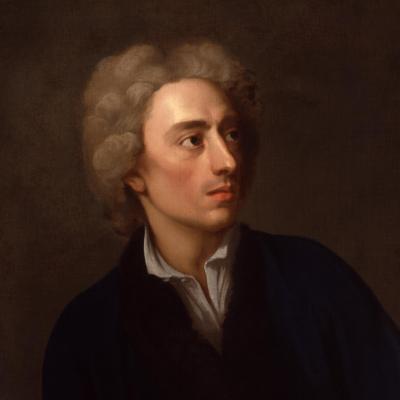Aristotle and Pope's Vast Chain

In his treatise On the Soul, Aristotle sets forth a tentative hierarchy of living beings organised around ‘αἱ δυνάμεις τῆς ψυχῆς’, the faculties of their soul (414a):
And so we must enquire according to each, what the soul of each is, as in what is the soul of a plant, and what is of human or animal. And for what reason they thus hold in a series, we must consider. (414b-415a)
More complex animals, whose ‘souls’ empowered them with more faculties, would fall above those less capable – with the strong implication being that humanity is at the head of the line, and plants at the bottom.
Neoplatonic philosophers, and later Christian thinkers, took this idea and ran with it, setting forth an ontological model of the universe based on Aristotle’s principal of gradation. Their chain extended further – now, at the top of this Great Chain of Being, sat God; then angels; then humanity – and so on, down to lifeless minerals.
In 1733, Alexander Pope was so inspired by the theory of the Great Chain of Being that he gave it a central place in his Essay on Man, arguing that we must accept our place in the chain:
Above, how high, progressive life may go!
Around, how wide! how deep extend below!
Vast chain of Being! which from God began,
Natures ethereal, human, angel, man,
Beast, bird, fish, insect, what no eye can see,
No glass can reach; from Infinite to thee,
From thee to Nothing…
From Nature's chain whatever link you strike,
Tenth or ten thousandth, breaks the chain alike.
And, if each system in gradation roll
Alike essential to th' amazing Whole,
The least confusion but in one, not all
That system only, but the Whole must fall.
(An Essay on Man I.235-241, 245-250)
Pope was, of course, classically educated. He did not cite Aristotle directly – but he did not need to. He would have well known the chain of reception that had produced his “Vast chain of Being”, stretching from Aristotle down to him.
